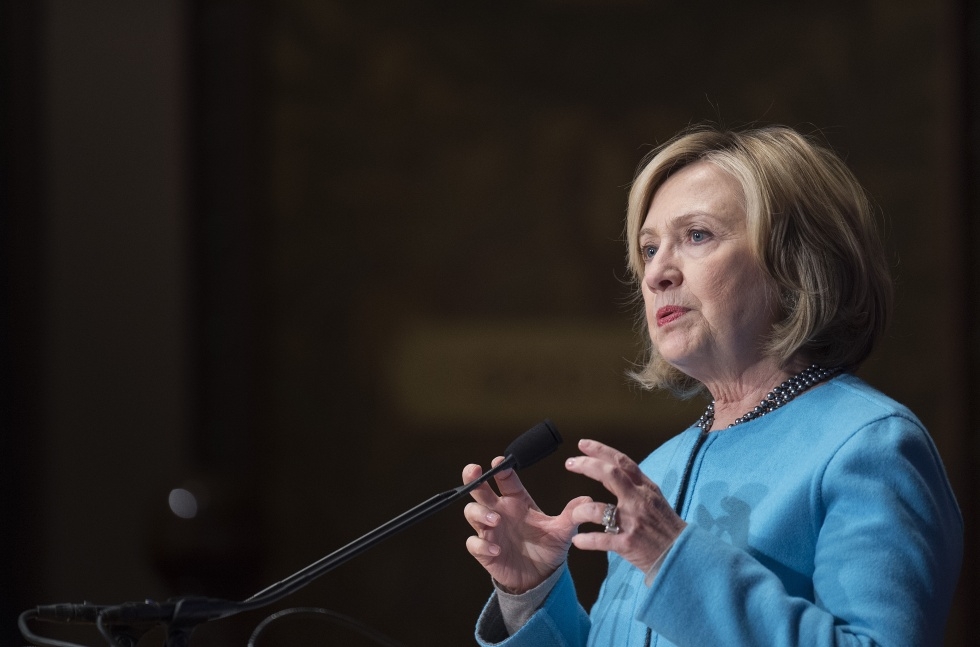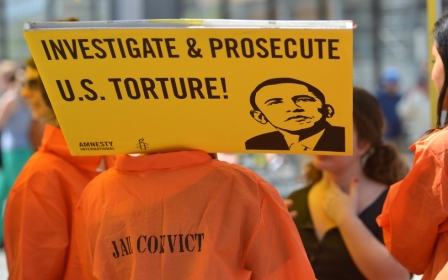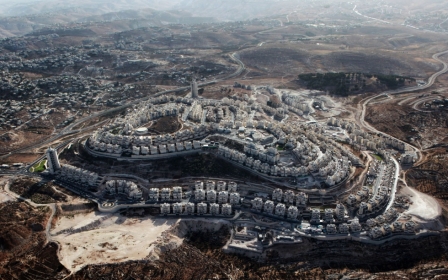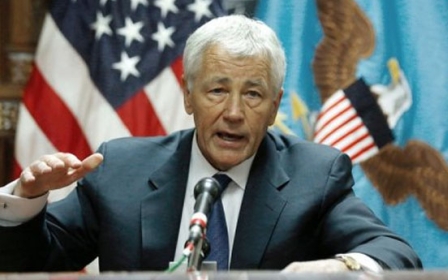What does another Clinton Administration mean for Palestine?

Hillary Clinton is yet to announce her candidacy for the 2016 US presidential race. But she’s running. Over the course of the past year, she has checked off everything a candidate must do prior to making their campaign official: book tour, repeat visits to early primary states, and high profile speeches.
Not only is she running, but also unless there’s a sudden seismic and unexpected shift in the demographic makeup of the presidential electoral map, she is almost assured of being the presumptive presidential nominee i.e. the 45th US president in waiting. According to a recent CNN/ORC poll, Clinton is the presumptive frontrunner for both the Democratic primary and the 2016 presidential race, among likely candidates.
So what does a President Hillary Clinton mean for the Israeli-Palestinian conflict?
On Friday, Clinton spoke at the Centre for Middle East Policy. The 11th annual Saban Forum was titled “Stormy Seas: the United States and Israel in a Tumultuous Middle East.” The event is hosted and named after billionaire Israeli-American media and entertainment mogul, Haim Saban. His forum is an annual get-together of pro-Israel government officials, policymakers and prominent public figures. Saban was also a major donor for Clinton’s 2008 presidential campaign.
“I have told her and everybody who’s asked me, ‘Whatever it takes, we’re going to be there,’” Saban said in an interview. “I think she would be a fantastic president for the United States, an incredible world leader and one under whom I believe - deeply - the relationship with the US and Israel will be significantly reinforced.”
Clinton’s address was delivered to the very pro-Israel audience the same day the Brookings Institute published a survey of American public attitudes toward the Israeli-Palestinian conflict. Nearly 6 in 10 Americans rank the conflict as one of the top five issues for US national interests, but Americans, by and large, remain ambivalent towards applying direct US pressure, as exemplified by the following: “Despite American public opposition to settlements, most do not support imposing sanctions or doing something harsher than making statements.” In fact, while 63 percent of Americans oppose Israeli settlement building, 61 percent believe the US should “limit action” to any effort by Israel to expand illegal settlements.
In other words, Americans care about Israel’s illegal activities, but not enough to want to intervene.
The Clintons are masters at measuring and swimming with popular public sentiment, thus America’s ambivalence was expressed in Clinton’s Saban address.
“The relationship between the United States and Israel is solid, and will remain solid, and will be part of our foreign policy and our domestic concerns, our values, ideals, forever.” When asked about the relationship between President Obama and Israeli Prime Minister Netanyahu, Clinton replied, “America’s bond with Israel has never been stronger.”
In many ways, Clinton’s 2014 appearance was a mea culpa for her 2012 remarks. That year, she was criticised by the Israel lobby for saying Israel had demonstrated a “lack of generosity” and a “lack of empathy” toward Palestinians. Last week, Clinton didn’t once mention Israel’s illegal settlement expansion, while at the same time giving vague lip service to support for a two-state solution. Given Israel has made little effort to convince the world it has ever been serious about a two-state solution, Clinton’s words were met with warm applause.
“There is a necessary imperative to continue to try to achieve a resolution between Israel and the Palestinians,” she said. “The two state solution … remains an important and, I would argue, essential concept to bring people together around.”
It’s clear Clinton’s remarks and her non-mention of Israeli settlement construction has already been warmly received in Israel. On Wednesday, Haaretz reported that Defence Minister, Moshe Ya'alon told a group of Israeli students that the Obama administration was “blocking Israel from building more settlements, but that the current government in the United States won't last forever.” The Israelis are astute followers of US politics. Ya’alon would know Clinton is not only favoured nominee among likely Democrats, but is also the overwhelming favourite to form the next government.
Clinton’s embrace of Israel has very much been “guided” by the Israel lobby over the course of the past two decades. In 1998, then First Lady, Clinton supported Palestinian statehood. In 1999, she publicly embraced Suha Arafat (wife of the late PLO leader Yasser Arafat), and, in turn, drew the ire of the Israel lobby. After much scolding, Stephen M. Walt and John J. Mearsheimer, authors of the “Israel Lobby and US Foreign Policy” write: “Clinton became an ardent defender of Israel once she began running for office herself, and she now gets strong backing, including financial support, from pro-Israel organizations and individuals.”
During her 2008 presidential campaign, Clinton said at an AIPAC meeting in New York: "Israel is a beacon of what's right in a neighbourhood overshadowed by the wrongs of radicalism, extremism, despotism and terrorism." At last week’s Saban Forum, Clinton pivoted from similar remarks, although a little less hyperbolic, to Israel’s perceived threat from Iran. “Iran’s sponsorship of terrorism, Iran’s support for [Syrian President Bashar] Assad and the havoc that that has wreaked, support for Hezbollah, the continuing pressure on providing arms to Hamas and so much else that it engages in in the region that causes great concern to Israel, our Arab partners in the Gulf, that’s all part of the ongoing challenge that Iran poses,” she said.
Does a Clinton presidency offer any hope for the Palestinian cause?
While she said Israel “cannot afford to relinquish its occupation of the West Bank for security reasons,” she did call for continued negotiations between the Israelis and the Palestinians. “Now I’m well aware of everything going on and the increasing tensions in the region, in Israel, in the West Bank to say nothing of the continuing aggressive behaviour from Hamas coming out of Gaza,” she said. “But the absence of negotiations leaves a vacuum that gets filled by problems, bad actors, threats, other kinds of behaviour that are not good for Israel and not good for the Palestinians.”
But what presidential candidate, from either US political party, hasn’t called for “continued negotiations”? For Israelis, the phrase “continued negotiations” means continuing with the status quo, which is why Clinton’s call for it was met with polite and feigned enthusiasm from the Saban audience. In an op-ed for the New York Times, Diana Buttu observes: “Israel’s perpetual rightward shift reflects the hubris of America’s spoiled child. Every elected American official pampers and lavishes support for Israel, even as Israel’s actions defy US interests and presidential statements. The world’s unwillingness to halt Israel’s illegal behavior, cements a mind-set that illegality is permissible.”
Vali Nasr, a former State Department advisor under the Obama administration, articulates America’s ambivalence clearly. “In reality, Israel is an American domestic political issue. Many Americans care deeply about Israel for religious and cultural reasons - Israel receives broad support from evangelical Christians, a community that is far larger than the American Jewish one,” Nasr writes in “The Indefensible Nation.” “We do not have vital strategic interests in the Jordan Valley, but the need to behave as if we do has put us in an unenviable position in the midst of the Arab-Israeli dispute.”
If America does have a “strategic vital interest” in Israel, it’s that the Palestinian conflict is what fuels anti-Americanism in the Middle East, which ultimately threatens US national security. “Unless Israel, too, feels pressure it will never seek accommodation with the Palestinians, relying instead on increasing forms of repression and mounting violence,” writes former New York Times Middle East Bureau Chief, Chris Hedges. “These measures, depriving Palestinians of hope and dignity, are the fuel of radical movements and ensure not peace but unending war.”
Thus, resolving this conflict will, in turn, result in not only promoting stability in the broader Middle East, but will also help douse the flames of anti-American sentiment.
President Obama has been unwilling to apply meaningful pressure on Israel. There’s little reason to believe a President Clinton will apply any more.
- CJ Werleman is an opinion writer for Salon, Alternet, and the author of Crucifying America, and God Hates You. Hate Him Back. Follow him on twitter: @cjwerleman
The views expressed in this article belong to the author and do not necessarily reflect the editorial policy of Middle East Eye.
Photo: Former US Secretary of State Hillary Clinton speaks at Georgetown University in Washington, DC, 3 December (AFP)
New MEE newsletter: Jerusalem Dispatch
Sign up to get the latest insights and analysis on Israel-Palestine, alongside Turkey Unpacked and other MEE newsletters
Middle East Eye delivers independent and unrivalled coverage and analysis of the Middle East, North Africa and beyond. To learn more about republishing this content and the associated fees, please fill out this form. More about MEE can be found here.





